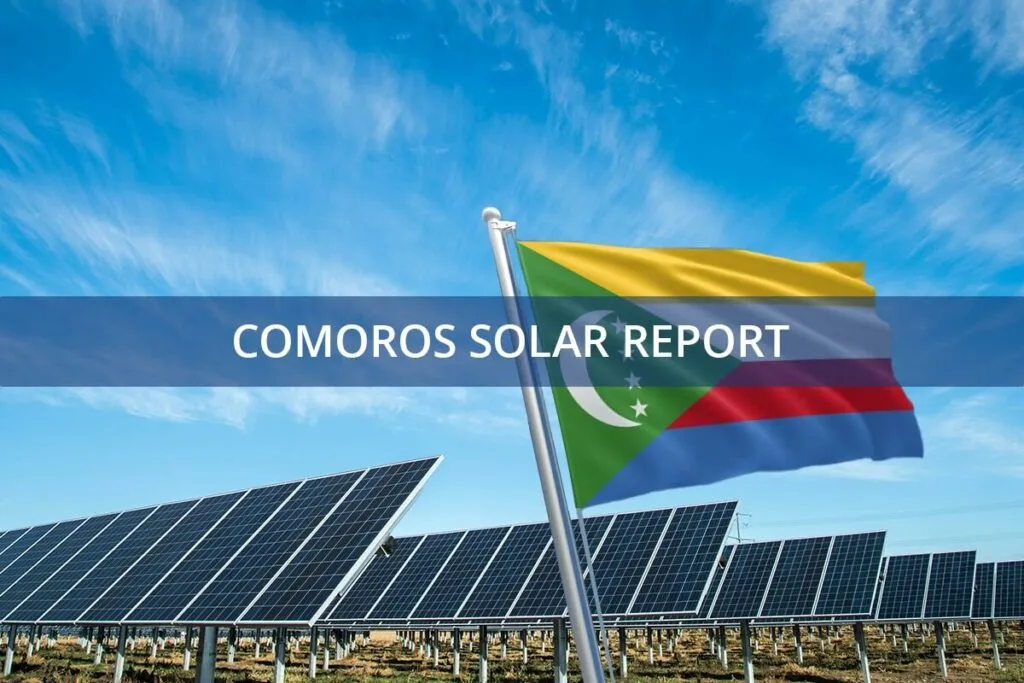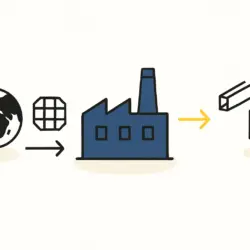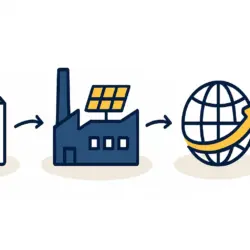Comoros Solar Energy: Addressing the Energy Crisis
The Comorian government has launched a major solar power project to address its ongoing energy crisis and reduce reliance on fossil fuels. This World Bank-funded initiative is a key part of the country’s broader strategy for sustainable development and lower carbon emissions.
The project will significantly boost renewable energy capacity with a 6.3 MWp photovoltaic (PV) power plant in the capital, Moroni, and the nearby town of Itsandra. This development marks a major step forward in the Comoros’ efforts to improve its energy infrastructure, providing a stable power source to meet growing electricity demand and curb chronic shortages. According to a Comoros Solar Panel Manufacturing Report, the country aims for 47 MW of installed solar capacity by 2027.
Comoros Solar Energy: Reducing Reliance on Fossil Fuels
Set to begin operations by the end of 2025, the solar power plant will be connected to the national electricity grid, ensuring a steady supply of clean energy to the capital and surrounding areas. The project is expected to significantly reduce the Comoros’ dependence on imported fossil fuels—costly, polluting sources that currently account for the majority of the country’s energy supply.
With abundant sunshine throughout the year, the nation’s geography and climate make it an ideal location for solar power generation. This investment is a key part of a broader plan to diversify the Comoros’ energy mix, reduce its carbon footprint, and create a more sustainable future.
World Bank Invests in Comoros Solar Energy
The World Bank is providing $40 million for this initiative through the Comoros Solar Energy Integration Project (CSIP), which aims to improve the country’s energy infrastructure and support renewable sources. This funding addresses key themes of environment and natural resource management, ensuring the project aligns with long-term sustainability goals.
In addition to the 6.3 MWp solar power plant, the project includes installing energy storage systems and upgrading the national grid. These improvements will help stabilize the power supply and reduce the risk of blackouts, a persistent problem in the Comoros. The CSIP is part of the World Bank’s larger effort to support sustainable development by helping nations like the Comoros reduce their reliance on fossil fuels.
Comoros Solar Energy: Supporting Economic Growth
The new solar power plant is expected to have a significant positive impact on the Comorian economy by providing a reliable and affordable source of electricity. A stable power supply will support local businesses and industries, which have long struggled with frequent outages and high energy costs.
The project will also create new jobs in the energy sector, as the plant’s construction and operation will require skilled workers and drive demand for training in renewable energy technologies. In addition, the Comorian government has launched awareness campaigns to inform the public about the benefits of solar power, aiming to build support for the country’s energy transition and ensure the project’s long-term success.



